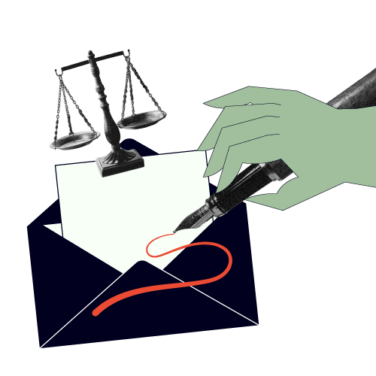Imagine your business is like a ship sailing smoothly on open waters. Suddenly, a storm appears on the horizon—a potential lawsuit. As the legal practice manager, you know this is no time to be tossing valuable cargo overboard. That cargo is your data and documents, and a "legal hold" is the order to keep everything safe and intact, no matter what.
Just like securing loose items on a ship in rough weather, a legal hold makes sure that no important information gets lost, damaged, or altered as you navigate the challenges ahead.
In this article, I’ll break down the essentials of a legal hold, why it’s crucial in today's world of digital records, and the steps involved in getting it right. With years of experience, I've seen firsthand how a well-managed legal hold can make all the difference, keeping the ship steady through the storm and ensuring you have everything you need when it matters most.
What Is A Legal Hold?
A legal hold, sometimes called a “litigation hold,” is a process that pauses the usual deletion or alteration of information because it might be needed for a legal case. This means people or businesses must keep any documents, emails, or data relevant to a possible lawsuit or investigation. Legal holds help make sure that all evidence is preserved, even if it might otherwise be deleted or updated.
The Importance Of Legal Holds In eDiscovery
Legal holds play a big role in eDiscovery, which is the process of finding and collecting digital information for a case. When a legal hold is in place, data isn’t deleted or changed, so the evidence remains reliable. This reliability is important for a fair legal process. If information isn’t preserved properly, it can lead to fines or other problems. Legal holds ensure that digital evidence is kept safe and ready to be reviewed if it’s needed in court.
When Do Legal Holds Occur?
Legal holds typically happen when a lawsuit, investigation, or regulatory inquiry is expected or has already started. If there is a hint of a legal dispute or if a business or person has reason to believe they’ll need specific information in the future, they should consider putting a legal hold in place. Legal holds can also happen when there’s an internal investigation or review.
When Is A Legal Hold Necessary?
A legal hold is necessary whenever there is a potential for legal action. For example, if someone files a complaint against a company, or if there is an accusation of wrongdoing, a legal hold might be required. It’s always better to be cautious; if there’s even a small chance of a lawsuit or investigation, implementing a legal hold helps ensure nothing is deleted or lost that could be important.
The Legal Hold Process: 5 Key Steps
The legal hold process involves several key steps:
- Identify what information might be relevant to the case.
- Notify everyone involved, so they know to keep the information safe.
- Monitor the process to make sure everyone is following the instructions.
- Collect the information when needed, ensuring it’s done in a way that keeps it intact.
- Release the hold when the legal case or need is resolved, allowing normal data management to continue.
What Is A Legal Hold Notice?
A legal hold notice is a message that lets people know they need to keep specific data or documents. This notice explains what they need to preserve and why it’s important. It often includes instructions on what type of information is relevant and how to keep it safe. This notice might be sent by email, a formal letter, or even through a special tracking system.
Who Issues A Legal Hold Notice?
A legal hold notice is usually issued by a company’s legal team, an attorney, or someone in charge of compliance or data management. In many cases, the person in charge of the hold will work closely with departments like IT or HR to ensure the right people are notified and that data is preserved correctly. For smaller businesses, it may be an executive or manager who takes responsibility for issuing the notice.
Who Receives A Litigation Hold?
A litigation hold is typically received by anyone who may have information relevant to the case. This could include employees, managers, or departments who work with data that could be evidence. IT staff, record-keeping teams, and even third-party service providers might be asked to keep specific information. It’s important that everyone understands their role so that no evidence is lost.
Common Legal Hold Challenges
Legal holds can present several challenges:
1. Lack of Understanding of What to Preserve and Why It Matters
One of the biggest challenges in a legal hold is that people often don’t fully understand what they’re supposed to preserve or why it’s necessary. Without clear guidance, employees may overlook important files or emails, assuming they aren’t relevant. This lack of understanding can lead to critical information being lost or mishandled, which could compromise the legal process and even result in penalties.
2. Technical Difficulties in Stopping Automatic Deletions
Many companies face technical obstacles when enforcing a legal hold, particularly with automated systems that routinely delete or archive data. These automatic deletions are often part of routine data management policies, but they can conflict with legal hold requirements. Halting or altering these systems to prevent data loss requires coordination with IT departments, and failure to address this can result in irretrievable loss of important information.
3. Failure to Follow Legal Hold Instructions
In some cases, even when employees receive instructions about a legal hold, they might not adhere to them precisely. This could happen due to oversight, misunderstanding, or a lack of prioritization. When employees fail to follow instructions, the legal hold process is compromised, increasing the risk of spoliation or penalties. Ensuring compliance across all levels of the organization is crucial for preserving relevant evidence.
4. Difficulty in Tracking Data and Ensuring Compliance
Legal holds require meticulous tracking of data to ensure all involved parties are following the required protocols. However, managing and monitoring data preservation across multiple departments or individuals can be challenging. Often, companies need to keep a close eye on who has access to what data, whether they are following instructions, and that no data is inadvertently altered or deleted. Effective tracking is essential for maintaining the integrity of the legal hold, but it can require extensive resources and coordination.
Legal Hold Best Practices
To make legal holds successful, follow these best practices:
- Clear Communication – Make sure everyone understands what to keep and why.
- Proper Training – Train staff to handle data properly when a legal hold is in place.
- Regular Monitoring – Keep checking that data is preserved and instructions are followed.
- Document Everything – Keep records of what actions were taken, so you can show that the hold was properly managed.
- Use Technology – Use law firm software to track and manage legal holds for better organization.
- Designate a Legal Hold Manager – Assign a dedicated person to oversee the process, ensure compliance, and troubleshoot issues.
- Establish a Chain of Custody – Track who accesses or handles data to maintain its integrity throughout the hold.
- Provide Regular Updates to Custodians – Keep all involved parties informed about the hold status and any changes.
- Conduct Routine Compliance Audits – Regularly audit the process to spot and address any gaps in compliance.
- Develop a Legal Hold Policy – Create a clear, formal policy outlining steps for issuing and managing legal holds.
These practices help make sure that important information is preserved, making the legal hold process more effective and defensible
10 Best Legal Hold Software
Here is a list of some of the best legal hold software available on the market right now (+ what each does best).
Legal Hold FAQs
Here are some additional topics that didn’t necessarily need their own section but are definitely worth covering to some degree:
What is a legal hold, and why is it important?
A legal hold is a policy that prevents the deletion or alteration of data during a legal matter. A legal hold notification is sent to those involved, detailing their obligations to preserve information related to the case. Legal hold obligations are essential to ensure evidence remains available and defensible in court.
Defensibility is key for legal teams, as it verifies that data was handled properly, fulfilling hold requirements. A defensible legal hold process safeguards relevant data, demonstrating compliance and upholding the integrity of evidence in a legal setting.
How should data be preserved and retained for a legal hold?
Data preservation during a legal hold requires a structured approach, including implementing preservation efforts to secure critical information. This includes a preservation order that specifies what needs to be retained, meeting legal obligations.
Data retention policies define how long data is held, while preservation obligations ensure nothing is deleted during a legal matter. Effective retention policies, combined with records management practices, ensure data remains accessible and intact throughout the case. Comprehensive preservation and retention measures are crucial to meet compliance standards.
What types of information should be preserved under a legal hold?
When a legal hold is issued, electronically stored information (ESI) becomes crucial. Relevant data includes all types of relevant information, such as documents, emails, and electronically stored content tied to the case.
Relevant documents and relevant evidence are essential to the legal matter, often categorized as relevant ESI. Identifying potentially relevant information and preserving it ensures compliance with legal requirements, maintaining an accurate and complete set of data for the discovery process.
Relevant information encompasses any data that could impact the case’s outcome.
What is the eDiscovery process, and how does it work in a legal hold?
The eDiscovery process involves the collection and review of data relevant to a legal matter. Data collection from data sources, including emails, records, and other electronically stored information, is a key part of eDiscovery.
Information governance sets the guidelines for how data should be managed, while workflows streamline tasks to ensure a smooth process. Many organizations use a template to standardize the steps involved, which helps streamline eDiscovery, making it efficient and consistent. A robust eDiscovery process is crucial to meet legal requirements and ensure that all necessary data is retained.
What are the risks of non-compliance with legal hold requirements?
Failure to comply with legal hold requirements can lead to serious consequences, such as sanctions or adverse inference rulings. Non-compliance can lead to accusations of spoliation, or the intentional destruction of relevant evidence. Spoliation of evidence may result in fines or penalties, and can severely impact a case’s outcome.
Legal professionals must prioritize regulatory investigation standards, as failing to preserve data may lead to adverse consequences. Proper management of legal hold processes reduces compliance risks and ensures data integrity.
How can technology support legal holds and data preservation?
Technology plays a vital role in preserving electronic data and supporting legal holds. Functionality within legal software allows for efficient management of data, streamlining compliance efforts.
Regular follow-up ensures ongoing compliance and that no data is unintentionally deleted. Technology enables smooth, effective legal holds, making it easier to meet data preservation requirements and manage legal hold processes over time.
Who is responsible for managing and responding to a legal hold?
The legal department typically oversees legal hold processes, working closely with custodians who are responsible for preserving relevant data. Custodians are individuals who manage data or documents that may be needed for a legal proceeding.
The legal department ensures that everyone understands their role in the legal hold process, especially in cases where multiple custodians and departments are involved. Legal proceedings often require collaboration between departments to ensure all relevant data is preserved and accessible for potential litigation.
What Next?
For more legal insights and resources, subscribe to The Legal Practice newsletter and join a community of innovative legal practitioners shaping the future of law.


